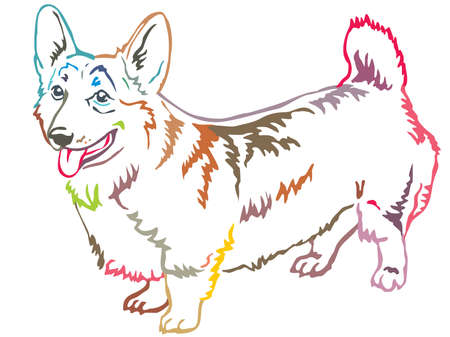1. Introduction: Plant-Based Diets for Pets
In recent years, more American pet owners are exploring vegan and vegetarian diets not just for themselves, but also for their furry companions. This growing interest is fueled by concerns about health, animal welfare, and the environmental impact of traditional meat-based pet foods. As awareness about plant-based lifestyles increases, many dog and cat parents are asking: Is it safe to feed my pet a vegan or vegetarian diet?
Pet food aisles in the U.S. are now stocked with a variety of plant-based options, reflecting this shift in consumer preferences. Social media groups and online communities are filled with discussions from pet owners who want to make kinder, greener choices for their dogs and cats. However, questions remain about whether these diets can meet all the nutritional needs of our pets.
Why Are Pet Owners Considering Plant-Based Diets?
| Reason | Description |
|---|---|
| Health Concerns | Some believe plant-based diets may reduce allergies or certain health issues in pets. |
| Ethical Beliefs | Owners want to align their pets’ diets with their own values around animal welfare. |
| Environmental Impact | Plant-based foods are often viewed as more sustainable compared to traditional meat-based diets. |
| Trends & Influence | The popularity of veganism and vegetarianism among humans is influencing pet food choices. |
This rising trend has sparked both curiosity and controversy. Veterinarians, nutritionists, and pet lovers alike are discussing what’s best for animal health while considering personal beliefs and environmental concerns. As we explore this topic further, we’ll look at what science says about the safety and suitability of plant-based diets for dogs and cats.
2. Nutritional Requirements of Dogs and Cats
When considering vegan or vegetarian diets for pets, it’s important to understand that dogs and cats have very different nutritional needs compared to humans. Their bodies are built to process food differently, so what works for us doesn’t always work for them.
Essential Nutrients for Dogs
Dogs are considered omnivores, which means they can eat a variety of foods from both animal and plant sources. However, their diet still needs to meet specific nutritional requirements to keep them healthy. Here’s a simple breakdown:
| Nutrient | Why Dogs Need It | Common Sources |
|---|---|---|
| Protein | Supports muscles, skin, and immune system | Meat, eggs, legumes (beans) |
| Amino Acids (Taurine, L-carnitine) | Heart health, energy production | Meat, supplemented in plant-based foods |
| Fatty Acids (Omega-3 & Omega-6) | Skin/coat health, brain function | Fish oil, flaxseed oil |
| Vitamins (A, D, E, B-complex) | Overall health and growth | Liver, vegetables (supplemented in vegan diets) |
| Minerals (Calcium, Phosphorus) | Bones and teeth strength | Dairy products, leafy greens (fortified foods) |
Essential Nutrients for Cats
Cats are obligate carnivores—this means they need certain nutrients that only come from animal sources. Here’s what’s essential for them:
| Nutrient | Why Cats Need It | Common Sources |
|---|---|---|
| Taurine | Heart and eye health; cats cannot make enough on their own | Animal tissues (must be added in plant-based diets) |
| Arachidonic Acid (Fatty Acid) | Healthy skin and coat; cats cannot produce it from plants | Animal fats (requires supplementation in vegan diets) |
| Vitamin A (Preformed) | Vision and immune function; cannot convert from plants like humans do | Liver and other animal organs (synthetic sources needed for vegans) |
| Vitamin B12 | Nerve function and red blood cell production; only found in animal products or supplements | Meat, fish (synthetic supplements for plant-based diets) |
| Protein & Amino Acids | Muscle maintenance and energy; higher requirement than dogs or people | Poultry, fish, eggs (carefully balanced plant proteins with supplements may be used) |
How Do These Needs Differ From Humans?
Unlike humans who can thrive on carefully planned plant-based diets, dogs and especially cats have strict requirements for certain nutrients that are hard or sometimes impossible to get from plants alone. For example, cats must get taurine and preformed vitamin A from animal sources or synthetic supplements because their bodies can’t make these nutrients from plants. Dogs are a bit more flexible but still need a well-balanced diet with all essential amino acids and nutrients.
The Takeaway on Pet Nutrition Needs
If you’re thinking about switching your dog or cat to a vegan or vegetarian diet, it’s crucial to understand these unique nutritional requirements. Meeting these needs with plant-based ingredients often requires special planning and supplementation to ensure your furry friend stays healthy.

3. Are Plant-Based Diets Safe for Dogs?
An Evidence-Based Look at Vegan and Vegetarian Diets for Dogs
With the rising popularity of plant-based diets among people in the U.S., many pet parents are wondering if dogs can thrive on vegan or vegetarian diets too. Let’s take a closer look at what research says about the safety and health impact of these diets for our canine companions.
Nutritional Needs of Dogs
Dogs are classified as omnivores, which means their bodies can process both animal and plant-based foods. However, dogs do have specific nutritional needs that must be met for optimal health. These include:
- Protein (with all essential amino acids)
- Fatty acids (like omega-3 and omega-6)
- Vitamins (A, D, E, B-complex, etc.)
- Minerals (calcium, phosphorus, zinc, etc.)
Potential Benefits of Plant-Based Diets for Dogs
Some studies and anecdotal reports suggest possible benefits to feeding dogs a well-formulated plant-based diet. These may include:
- Allergy Management: Some dogs with food allergies (especially to certain animal proteins) might benefit from plant-based recipes.
- Weight Management: Plant-based diets can sometimes be lower in calories and fat, helping overweight dogs.
- Environmental Impact: Choosing plant-based dog food may reduce your pet’s carbon “pawprint.”
Risks and Considerations
The biggest concern with vegan or vegetarian diets for dogs is ensuring they receive complete and balanced nutrition. Here’s a quick look at potential risks:
| Nutrient | Why It Matters | Plant-Based Challenge |
|---|---|---|
| Taurine & L-carnitine | Essential for heart health | Difficult to obtain in adequate amounts from plants alone; often requires supplementation. |
| Vitamin B12 | Cognitive function & red blood cell production | Not naturally found in plants; must be supplemented. |
| Protein Quality | Amino acid balance for muscle & tissue repair | Some plant proteins lack certain essential amino acids; careful formulation needed. |
| Calcium & Phosphorus Balance | Bone health | Needs precise formulation to avoid deficiencies or excesses. |
| Zinc & Iron | Immune system support & oxygen transport | Plant sources are less easily absorbed than animal sources. |
What Does the Research Say?
A few studies show that dogs can maintain good health on carefully formulated vegan diets, but these diets must be nutritionally complete. The American Kennel Club (AKC) and most veterinary nutritionists stress that homemade plant-based diets are risky without expert guidance. Commercially available vegan or vegetarian dog foods made by reputable brands are typically supplemented with nutrients that might be missing from plants alone.
The Bottom Line for Dog Owners Considering Plant-Based Diets
If you’re thinking about switching your dog to a vegan or vegetarian diet, it’s essential to consult with your veterinarian or a board-certified veterinary nutritionist. They can help you choose a diet that meets all your dog’s nutritional requirements and monitor your pet’s health through regular checkups.
4. Are Plant-Based Diets Safe for Cats?
Understanding Cats as Obligate Carnivores
Cats are known as obligate carnivores, which means their bodies are designed to get essential nutrients from animal sources. Unlike dogs, who can adapt to a more flexible diet, cats have specific nutritional requirements that make feeding them a plant-based or vegan diet especially challenging.
Key Nutritional Needs of Cats
Cats need certain nutrients that are naturally found in animal tissues. The most important ones include:
| Nutrient | Why Its Essential | Animal Source Example | Plant-Based Alternative? |
|---|---|---|---|
| Taurine | Supports heart health, vision, and reproduction | Meat (muscle, organs) | No natural plant source |
| Arachidonic Acid | Essential fatty acid for skin and kidney function | Animal fats, organs | No natural plant source |
| Vitamin A (Retinol) | Vision, immune function, skin health | Liver, animal tissues | No direct plant form; cats cant convert beta-carotene efficiently |
| Vitamin B12 (Cobalamin) | Nerve function, red blood cell formation | Animal proteins (meat, fish) | No plant source |
Challenges of Feeding Cats a Plant-Based Diet
- Nutrient Deficiencies: Because plants do not provide certain nutrients cats need, relying solely on vegan or vegetarian foods may lead to deficiencies in taurine, vitamin B12, vitamin A, and more.
- Synthetic Supplements: Some vegan cat foods add synthetic versions of these nutrients. However, the long-term effects and reliability of these supplements are still debated among veterinary experts in the U.S.
- Picky Eaters: Many cats are naturally less willing to try new foods, making the transition to a plant-based diet difficult and potentially stressful for both cats and owners.
- Health Risks: Without proper levels of animal-based nutrients, cats can develop serious health problems such as heart disease (dilated cardiomyopathy), blindness (from taurine deficiency), skin issues, and overall poor health.
What Do Veterinary Experts Say?
The American Veterinary Medical Association (AVMA) and most board-certified veterinary nutritionists in the United States do not recommend plant-based diets for cats. Their primary concern is that even with supplements, there is a significant risk of nutrient imbalances and long-term health consequences. Regular blood tests and close monitoring by a veterinarian would be necessary if choosing this dietary path—but it remains controversial and risky.
5. Veterinary Perspectives and Recommendations
What American Veterinarians Say About Plant-Based Diets for Pets
When it comes to feeding dogs and cats vegan or vegetarian diets, many pet owners want advice from experts they trust. Across the United States, veterinarians and animal nutritionists have a variety of perspectives on this topic. Here’s what you need to know about their insights and recommendations.
The Importance of Species Differences
Veterinarians point out that dogs and cats have different nutritional needs. Dogs are considered omnivores, which means they can digest both plant and animal foods. Cats, however, are obligate carnivores—they require certain nutrients that are found naturally only in animal products.
| Pet | Diet Flexibility | Key Nutrient Concerns |
|---|---|---|
| Dog | Omnivore (more flexible) | Protein, Vitamin B12, Iron, Amino acids (like taurine) |
| Cat | Obligate Carnivore (less flexible) | Taurine, Vitamin A, Arachidonic acid, Vitamin B12 |
Expert Recommendations for Dog Owners
- Consult Your Veterinarian: Before switching your dog to a plant-based diet, talk with your vet to discuss health risks and benefits.
- Choose Complete Diets: Use commercially prepared vegan or vegetarian dog food labeled as “complete and balanced” by the Association of American Feed Control Officials (AAFCO).
- Monitor Health Regularly: Schedule regular check-ups and blood tests to catch any nutrient deficiencies early.
Expert Recommendations for Cat Owners
- Caution Is Strongly Advised: Most American veterinarians do not recommend vegan or vegetarian diets for cats due to their unique dietary needs.
- If You Must Try: Only use commercial cat foods that are specifically formulated and tested to meet all nutritional requirements—homemade plant-based diets for cats are especially risky.
- Watch for Signs of Deficiency: Symptoms like poor coat condition, weight loss, or lethargy should be reported to your vet immediately.
Nutritional Testing and Monitoring
Animal nutrition experts stress the importance of regular health monitoring when pets are on plant-based diets. Blood tests may be needed to track levels of essential amino acids, vitamins, and minerals. If any deficiencies are detected, adjustments should be made right away.
A Word on Home-Prepared Diets
Baking homemade vegan meals for pets may sound appealing but is not recommended without guidance from a board-certified veterinary nutritionist. Even well-meaning recipes can lack crucial nutrients if not properly formulated.
6. Practical Tips for Pet Owners Considering Plant-Based Diets
Thinking About a Vegan or Vegetarian Diet for Your Pet?
If you’re curious about transitioning your dog or cat to a plant-based diet, it’s important to approach this change thoughtfully and with guidance. Dogs and cats have unique nutritional needs, and not all pets will thrive on vegan or vegetarian diets. Here are some practical tips to help you make the transition as safe and smooth as possible.
Consult Your Veterinarian First
Before making any changes to your pet’s diet, schedule a visit with your veterinarian. Discuss your reasons for considering a plant-based diet and ask about potential health concerns specific to your pet’s breed, age, and medical history. Some pets may need extra monitoring or supplements to stay healthy on these diets.
Selecting the Right Food
Look for commercially available vegan or vegetarian pet foods that meet the Association of American Feed Control Officials (AAFCO) standards. These foods are formulated to provide complete and balanced nutrition for dogs or cats. Avoid homemade diets unless guided by a veterinary nutritionist, as it can be challenging to meet all your pet’s nutritional requirements at home.
Comparison Table: Nutritional Considerations
| Nutrient | Dogs’ Needs | Cats’ Needs | Plant-Based Sources/Supplements |
|---|---|---|---|
| Protein | Moderate-High | High (Obligate carnivores) | Soy, peas, lentils; synthetic amino acids like taurine & L-carnitine (especially for cats) |
| Vitamin B12 | Essential | Essential | Supplement required (not found in plants) |
| Taurine | Can synthesize but may need supplement | Must be supplemented | Synthetic taurine supplement needed for cats |
| Arachidonic Acid | Can make from plant oils | Must be supplemented | Synthetic supplement needed for cats |
Transition Slowly and Monitor Closely
Abrupt changes in diet can upset your pet’s digestive system. Gradually mix increasing amounts of the new food with their old food over at least 7–10 days. Watch for signs of digestive upset, decreased energy, skin problems, or other health changes. If you notice anything unusual, consult your vet promptly.
Regular Health Checks Are Essential
Pets on vegan or vegetarian diets should have more frequent check-ups, including blood tests to monitor nutrient levels and overall health. This is especially important for cats, who have more complex nutritional needs than dogs.
Checklist: Steps for a Safe Transition
- Vet Consultation: Get professional advice before starting.
- Select AAFCO-approved Foods: Ensure balanced nutrition.
- Gradual Transition: Switch foods slowly over several days.
- Add Supplements: Follow vet recommendations—especially for cats.
- Monitor Health: Watch appetite, weight, coat condition, and activity level.
- Schedule Regular Vet Visits: At least twice a year while on a plant-based diet.
Your Pet’s Wellbeing Comes First!
The decision to switch your dog or cat to a vegan or vegetarian diet should always prioritize their health and happiness. Stay informed, work closely with your veterinarian, and pay attention to how your pet responds throughout the process.
7. Conclusion: Finding the Best Diet for Your Pet
Choosing the right diet for your dog or cat is an important part of being a responsible pet parent. While vegan and vegetarian diets are becoming more popular among people in the U.S., it’s important to remember that pets have different nutritional needs than humans. Here’s a quick overview to help you make informed, health-focused choices for your furry family members:
Key Points to Consider
| Aspect | Dogs | Cats |
|---|---|---|
| Natural Diet | Omnivores – can eat both animal and plant foods | Obligate Carnivores – need animal-based nutrients |
| Vegan/Vegetarian Feasibility | Possible with careful planning and vet guidance | Difficult and not recommended due to essential nutrients found only in animal products |
| Risks | Nutrient deficiencies if not properly balanced | Severe health issues if lacking taurine, arachidonic acid, or vitamin A from animal sources |
| Veterinarian Involvement | Essential for monitoring and supplement advice | Absolutely necessary; consult before any diet change |
Tips for Making Health-Focused Decisions
- Talk to Your Vet: Always involve a veterinarian when considering dietary changes, especially vegan or vegetarian options.
- Watch for Signs: Monitor your pet’s energy level, coat condition, digestion, and weight regularly.
- Avoid DIY Diets: Homemade diets may lack crucial nutrients unless professionally formulated.
- Check Labels: Choose high-quality commercial pet foods that meet AAFCO standards if exploring plant-based options for dogs.
- Cats Need Meat: Remember that cats require nutrients only available in animal products for good health.
- No One-Size-Fits-All: Each pet is unique—what works for one may not work for another.
Your Pet’s Well-being Comes First
The health and happiness of your pets should always come first. If you’re interested in alternative diets like vegan or vegetarian plans, be sure you’re fully informed and work closely with your veterinary team. By staying proactive and educated, you can help your dogs and cats thrive as beloved members of your family.


